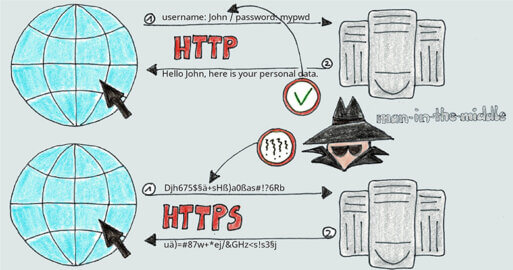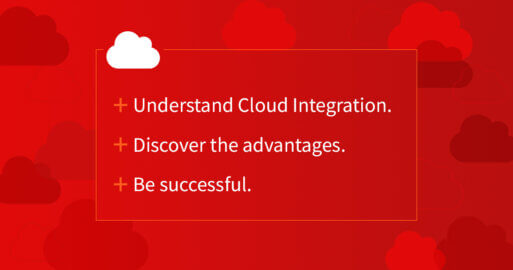Top 3 Considerations (and 8 Vendor Criteria) For Choosing a Cloud Integration Services Provider

If your company is funding the modernization of your EDI/B2B platform, follow these 3 key steps to maximize success in your vendor selection process:
- Choose a deployment method early
- Employ key vendor evaluation criteria
- Don’t forget the make-or-break intangibles
Before selecting the best vendor for your integration needs, consider who will be responsible for completing the evaluation of the next EDI/B2B platform for your company. This is important, because some people tend to choose on-premises solutions, which may not be the best option for your company as a whole.
Does your evaluation team have a bias toward using on-premises software? The bias may be an understandable part of human nature, if they believe that using on-premises solutions will protect their jobs. If you are an executive sponsor of this project, make sure to understand the motivations driving your teams’ decisions. Also note that unless you go with a full-service solution, you will still need resources for an iPaaS solution. Your knowledgeable team members could be trained to handle this side of the integration coin, which will only help them in their careers – the more skills they have, the more they are able to take on higher-value tasks, and be relieved from routine tasks, such as software updates.
Choose a Deployment Method Early
It is critically important to determine the deployment model you plan to use as early as possible during the evaluation process. There are three deployment methods to consider – on-premises, integration Platform as a Service (iPaaS) and managed services; the latter two are both cloud-based or hybrid, and the future of B2B is undoubtedly in the cloud. Choose your deployment method by considering the following factors:
Resources
- Do you have experienced integration resources that can manage your new environment and anticipated growth? Both from a business and technical point of view?
- Do your resource requirements fluctuate with business cycles? What would be the best strategic use of your resources?
- Can you easily replace integration resources if they leave unexpectedly or retire?
If you have limited resources or are looking to reduce resources, a managed services deployment may be the best option.
Change Management
- Are you planning to adopt new applications, which would require you to look at integration technologies for ERP, API or IoT?
- Are you moving to a new ERP or considering a move to a newer version of your existing ERP?
- Are you equipped to support additional change management projects?
If you are expanding or changing your architecture, and are not equipped to handle change management with your current resources, managed services is your best option.
Cost
- How many resources and how much time will it take to migrate from your current solution to your new solution?
- After you have implemented your new solution, how many resources will be required for support and change management?
- Do you need your IT resources to work on other business areas?
If you have just enough resources to handle your workload and a migration will require additional support, an iPaaS solution could work well.
Strategic Direction
- Are you moving to cloud with other applications?
- Are you looking at cloud integration strategies to enable and share data between these applications, and others, both on-premises and in the cloud?
- Is the cloud a critical part of your corporate direction, for any new technology or business initiative?
If the cloud is part of your company’s current and future strategy, depending on your daily work, either iPaaS or managed services are your best bet.
Employ Key Vendor Evaluation Criteria for iPaaS and Managed Services
If you have determined that a cloud-based model of either managed services or iPaaS is the best path forward for your organization and you are ready to evaluate your options, here are eight important criteria when evaluating any B2B service provider.
- Superior Support – All managed services providers have Service Level Agreements (SLAs). Do they deliver on their SLAs? How do you know? Can they provide flexible/customized SLAs?
Is their Support organization stable and experienced? Do their Support personnel actually work for the company or are they contract employees?All managed service providers should provide proactive monitoring of your B2B program and Tier 1 support. Your service provider should also provide a visibility tool and reporting features. - One platform – If the provider has multiple integration platforms, their Support and Development resources will be stretched thin. Did they develop their platform organically or was it cobbled together with third-party software or software they picked up through an acquisition? Also, if your provider has multiple integration platforms, it is possible they will eventually acquire a new platform to support new technology, and your platform will become a poorly supported legacy platform.
- Flexibility – Does the provider support multiple deployment models (on premise, iPaaS and managed services) using a single platform? Supporting all deployment models with the same platform provides the flexibility to move more easily from one deployment option to another and makes all deployment models easier to support with the same resources, whether development, pro services, or support staff.
- Pre-configured, ready-to-use content to speed migration to the Cloud and support the long-term growth of your B2B program – Does the provider have mapping libraries, communications libraries and connectors for all popular Cloud services? Rapid deployments and quick onboarding of trading partners, including self-services, reduce costs and increase ROI.
- Support for all patterns of integration – EDI, API, MFT, EAI, etc. Make sure you are investing in a solution that “future-proofs” your B2B program. Dig deeper when a provider tells you they support APIs – do they provide API management? Do they support asynchronous communication? How deep is their API library? Does the provider enable connectivity to a variety of systems and applications?
- Security – All providers should be able to provide a list of their certifications and be willing to show you recent audit results. Here is what to ask for: SOC 1 Type 2, GDPR, ISO27001, ISAE 3402 audit. The right managed service provider can guarantee a safer environment than you are able to provide with your on-premises solution.
- Scalable and Available – Many of the smaller providers frankly cannot handle the transaction volumes of enterprise customers – and it is important to ensure your provider can handle the volume where you are headed, not where you are today. Your provider should guarantee 99% uptime and should have experience managing large and sophisticated B2B programs.
- Global and local presence – If you are a U.S. company, you will want support in the U.S. You will also want to make sure the provider has a data center in the U.S. With the nature of today’s global business, if you have a presence in Europe or Asia, you will want local support and data centers there as well.
Don’t Forget the Make-or-Break Intangibles
Any qualified B2B managed service provider should meet the eight basic criteria for evaluating vendors. Often, though, the intangibles make or break managed service projects.
The best way to find out if the managed service provider is truly customer-centric is to check references. While many providers do not like to provide references until late in the process, because they don’t like to bother their customers with frequent reference calls, happy customers are usually glad to speak with prospects.
These three make-or-break intangibles should be part of your decision-making process:
- Does the provider inspire trust?
- Do they have industry knowledge?
- Are you comfortable with the references provided?
For managed service success, the ideal provider will become an extension of your IT team – allowing your resources to focus on more strategic projects. Making the right choice will reduce resource and infrastructure costs and provide a stable and efficient environment to manage and grow your B2B program.
SEEBURGER Integration is a mix of our technology, our services and our people, all here for the sole purpose of accelerating your business. The full functionality of SEEBURGER Business Integration Suite is the foundation for SEEBURGER iPaaS, available in the SEEBURGER Cloud, in public clouds and your private cloud/data center.
Choose your level:
- Customer-owned operation of the platform
- SEEBURGER operation of the platform
- SEEBURGER full-service operation of the platform and integrations
For more information, contact us.
We provide references early in the evaluation process and have partnered with an independent third-party company – IT Central Station – that interviews our customers and publishes the results online.
Thank you for your message
We appreciate your interest in SEEBURGER
Get in contact with us:
Please enter details about your project in the message section so we can direct your inquiry to the right consultant.
Written by: Ray Moore
Ray Moore, Senior Director Sales has over 25 years of high tech sales experience, with the last 20 years focused on complex data integration solutions for Global 1000 companies. These solutions include: APIs, B2B, MFT and IoT solutions delivered via managed services, IPaaS and on premise software. He has a BBA in Finance from the University of Georgia’s Terry College of Business.





